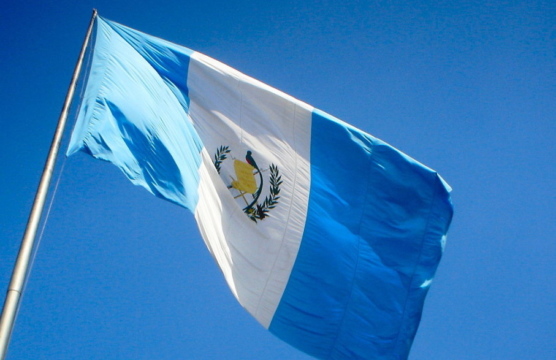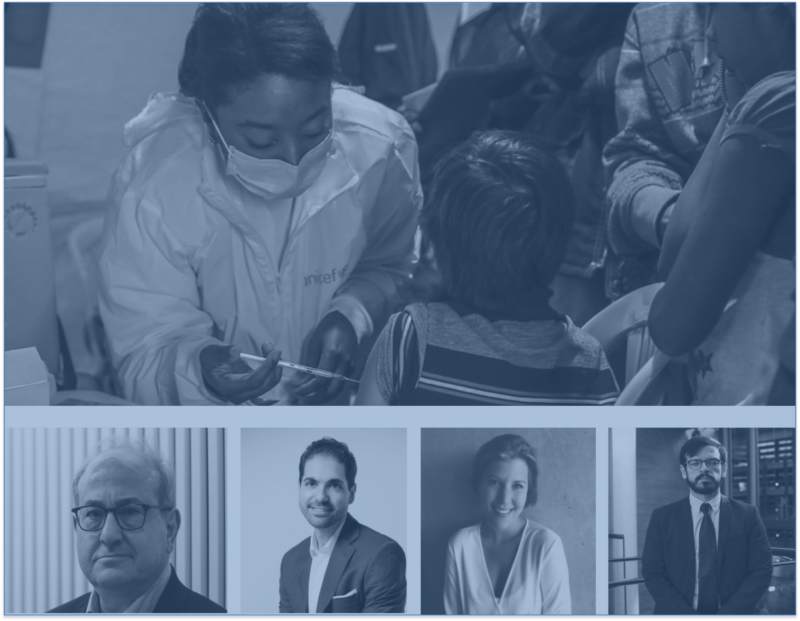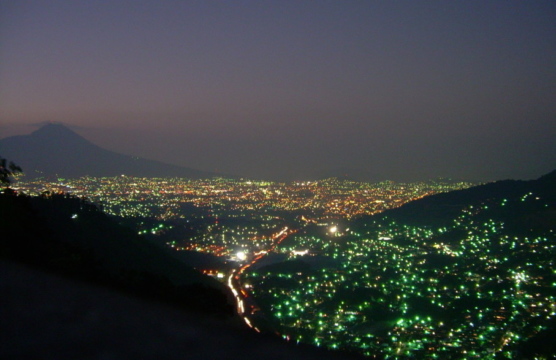
Are Countries Making Progress in Fighting Corruption?
Which countries in the region are making strides in fighting corruption, and which are falling short?
This post is also available in: Español
On September 30, 2020, the Inter-American Dialogue hosted “Venezuela’s Humanitarian and Human Rights Crises: The Search for Innovative Responses” to discuss the current humanitarian situation as well as present the findings of the Dialogue’s Peter D. Bell Rule of Law Program's report, Corruption and Crisis in Venezuela: Asset Repatriation for Humanitarian Relief. The webinar featured opening remarks and moderation from Michael Shifter, president of the Inter-American Dialogue, and analysis from Miguel Pizarro, commissioner of the Guaidó government for the United Nations and for Humanitarian Assistance, Michael Camilleri, director of the Peter D. Bell Rule of Law Program at the Inter-American Dialogue, and Elisabeth Pramendorfer, senior human rights officer at the Global Centre for the Responsibility to Protect.
Pizarro began the conversation by emphasizing that Venezuela is experiencing a man-made crisis that has led to the second-highest displacement in the world at over five million refugees. Pizzaro emphasized the crimes against humanity committed by the Maduro regime, including thousands of extrajudicial killings, torture, and sexual violence. He also outlined that the Guaidó government has helped fund programs to respond to the Covid-19 pandemic. This includes the International Federation of the Red Cross, to help strengthen first-line response, increase testing, and open new labs to detect the virus across the country. Additionally, they initiated the program Héroes de la Salud, to support first responders working within the public health system and currently living on around $4 a month. Pizzaro pointed out that these initiatives were undertaken without going through the regime's banking system. For Pizarro, this indicated that the Guaidó government is “building the precedent and building the base to use frozen money to fund the humanitarian response in the country,” an idea that aligns with the findings of the Rule of Law Program’s recent report.
Widespread impunity for human rights violations and corruption characterize the Maduro regime. Yet, when it comes to an international response, statutory frameworks for corruption accountability are easier to invoke than demonstrating the regime's engagement in human rights abuses. Camilleri argued that the complex humanitarian emergency paired with a historic economic crisis, the supportive yet underfunded international response, and the hundreds of billions of dollars stolen through corruption, merit a creative approach by which to return stolen assets to fund a humanitarian response. Camilleri also stated that the main obstacle to this effort is returning those funds to the country while Maduro remains in power. The report suggests a few ways to return those funds, including: 1) using a discretionary fund controlled by the Venezuelan National Assembly; 2) working around the Maduro regime and returning the assets to Venezuelan refugees and the organizations assisting them, an option without any precedents; or, 3) involving a multi-donor trust fund to support the network of international humanitarian groups that have access to Venezuelan territory. Camilleri noted that these efforts are worth pursuing since “even a fraction of the sum total that was stolen from Venezuela would vastly outstrip all the money that has been collected for humanitarian assistance."
Pramendorfer emphasized the significance of the conclusion of the UN fact-finding mission, which demonstrated the gravity of the systematic human rights abuses that have become state policy under Maduro. Regarding the applicability of Responsibility to Protect (R2P), specifically Pillar 3 and the use of force, Pramendorfer stated that in Venezuela’s case, this move is unlikely given possible opposition from China and Russia. Moreover, in the event that this decision passed, there are fundamental questions to consider: 1) whether the use of force is applied to protect the population from atrocity crimes or to propel a change in government; and, 2) the consequences that an intervention would cause for Venezuelans on the ground. Pramendorfer stated that the conversation on R2P needs to be shifted, “R2P as a norm is not about regime change, it’s not about changing a government, it’s about changing a government's behavior.” Pramendorfer concluded by urging that this conversation shouldn't be framed between inaction or military intervention: there needs to be a middle ground response involving high-level diplomatic pressure to make the costs high for perpetrators of these atrocious crimes.
The webinar concluded with questions from the audience regarding how to determine the dollar amount of corruption and the methodological challenges that it presents, why proceeds from frozen Venezuelan assets have not been utilized previously, and whether this process of asset repatriation depends on the Guaidó government staying in place, among others.
Which countries in the region are making strides in fighting corruption, and which are falling short?
Organized criminal groups pose an increasing risk to democracy and the rule of law in El Salvador.
Over the past weeks, public discontent with the administration of President Dilma Rousseff has continued to rise.
 Main Photo: UNICEF Ecuador / Flickr / CC By 2.0
Main Photo: UNICEF Ecuador / Flickr / CC By 2.0
 Video
Video